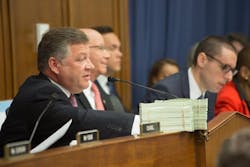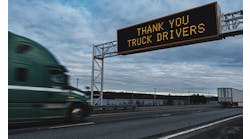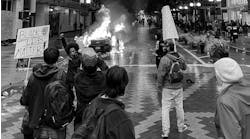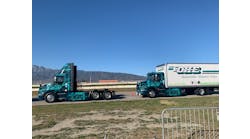It happens every four years. The Winter Olympics begin and everyone talks about the sport of curling.
Chances are a local news station has broadcasted live from a nearby curling center. Even Mr. T took to Twitter to inform the world he was watching.
And once the Olympics end, so too does the public’s interest in curling for another 47½ months.
I bring up this phenomenon because there are parallels with infrastructure funding. Just about everyone had a reaction to President Trump’s 55-page outline released earlier this week. Often the opinions aligned closely with their overall political leanings.
Five years ago, I interviewed Rep. Bill Shuster (R-PA) just after he became chairman of the House Transportation and Infrastructure Committee. He told me “everything needs to be on the table” when it comes to federal funding for highway projects.
Shuster played a key role in passage of the FAST Act in 2015. That five-year, $305 billion law was praised for providing short-term funding assurances, but was never seen as addressing the larger needs.
In recent years, there have been brief moments when it seemed infrastructure funding would become a national priority. One was after the I-35W bridge collapse in Minnesota.
But since the FAST Act was signed into law in December 2015, infrastructure seemed to fade away. The topic came up occasionally during the 2016 presidential campaign, but like curling, it never stuck around long.
Will this time be different? As we approach a heated midterm election cycle, it could be a daunting challenge.
With Shuster not running for re-election, he will be a critical person in the House as lawmakers try to build consensus.
Shuster referenced raising fuel taxes during my 2013 interview, but the idea never gained traction. Trump on Feb. 14 seemed to endorse a federal fuel-tax hike, but gaining wide support remains far from certain, especially with Charles and David Koch among the political donors against any fuel-tax hike.
American Trucking Associations deserves credit for suggesting a phased-in federal usage “fee” built into the price of wholesale fuels collected at the terminal rack as an alternative. But that too could run afoul of the anti-tax crowd.
On a related note, it is puzzling how few mentions of freight were included in Trump’s plan. A search of the document found six, focused mainly on short-line railroads and rural projects. That seems to run counter to a new report from the Reason Foundation, which found the more populous the state, the more likely its roads are failing.
But the White House’s plan was meant as a starting point, with the hard work of coming up with the details just getting started.
Let’s hope come February 2022, the next time we gather to watch people on ice with brooms, large-scale infrastructure projects will have already been built, rather than still being discussed.




